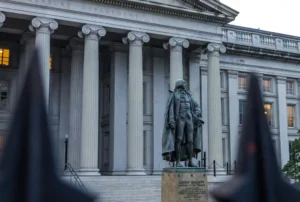January 30, 2012; Foreign Policy Passport | Many of the community organizers reading the NPQ Newswire have probably been impressed with candidate Newt Gingrich’s preoccupation with community organizing icon Saul Alinksy. According to the former Speaker of the House, the Gingrich campaign is fundamentally “American exceptionalism versus the radicalism of Saul Alinsky.” Alinsky would have been tickled to have gotten under Gingrich’s skin to this extent. Discomfiting the comfortable was always one of Alinksy’s favorite tactics.
Gingrich is aiming the Alinskyite charge at former community organizer President Barack Obama, but during the Clinton Administration, First Lady Hillary Clinton was also charged with being an adherent of the tough-as-nails organizer, partly due to her having written her 1969 senior thesis at Wellesley College on Alinsky. During his era of writing conservative screeds against liberal leaders, David Brock wrote a biography of Hillary Clinton in which he called her “Alinsky’s daughter.”
Hillary—and the Clinton White House overall—played into the critique by refusing to have the thesis publicly released, even pressuring Wellesley to adopt a policy that made all senior theses available in the college archives other than those authored by a “president or first lady of the United States.” Hillary Rodham Clinton is the only person in Wellesley’s 140-year history that would fall under this rule. Why keep the thesis secret? In the paper, Clinton called the Alinsky “power/conflict model…inapplicable by existing social conflicts” and ultimately “anachronistic.”
Sign up for our free newsletters
Subscribe to NPQ's newsletters to have our top stories delivered directly to your inbox.
By signing up, you agree to our privacy policy and terms of use, and to receive messages from NPQ and our partners.
But the real anachronism was the Clinton White House’s effort to deny the public access to the text. Given that Hillary Clinton was the FLOTUS with more nonprofit experience than any before or since, it was an unfortunate statement about her attitude toward transparency. As a model for organizers, nonprofits, and first ladies, that kind of resistance to disclosure turns nothingball issues into the fetishes of conspiracy theorists (and, ultimately, her thesis somehow made it online anyhow).
As for President Obama, he may have been a Chicago community organizer, but he seems to have had no particular ideological or tactical connection to Alinsky other than in the imagination of Newt Gingrich and his ideological soulmates. —Rick Cohen












